Prescription Medications For Hair Loss
There are prescription medications available to address hair loss conditions. This falls under the category of pharmacological interventions and can be used as standalone treatments or combined with other hair restoration procedures.
In Singapore, health products are regulated by the Health Sciences Authority (HSA). Therapeutic products, including prescription medications, must be registered with the HSA before being distributed locally. The HSA oversees the manufacturing, distribution, and clinical evidence of these products, requiring comprehensive clinical trials to ensure their safety, efficacy, and quality.
Hair loss can result from various underlying causes, and the medications approved for treatment differ accordingly. Each medication is designed to address specific types of hair loss, targeting the root cause to achieve optimal results.
Commonly Known Medications for Androgenetic Alopecia in Singapore
Since 1998, two oral medications have been approved in Singapore for treating androgenetic alopecia, also known as male and female pattern baldness. These medications are:
Oral Minoxidil
Oral minoxidil is approved for use in both men and women for the treatment of androgenetic alopecia.
Mechanism of Action
Minoxidil promotes hair regrowth by prolonging the anagen (growth) phase and shortening the telogen (rest) phase of the hair cycle.
Reported Side Effects
Temporary increase in hair shedding during the initial treatment phase, temporary skin irritation, contact dermatitis (skin inflammation), local pruritus (itching) and hypertrichosis (excessive hair growth).
Finasteride
Finasteride is only approved to be used in males for the treatment of pattern hair loss in Singapore.
Mechanism of Action
Finasteride reduces the production of an androgen known as dihydrotestosterone (DHT) by blocking the conversion of testosterone into DHT. This delays or prevents the progression of hair loss in men with androgenetic alopecia.
While DHT supports normal hair growth, excessive production is associated with worsening male pattern hair loss.
Reported Side Effects:
Increased risks of sexual dysfunction, erectile dysfunction, decreased libido, gynecomastia (increasing in breast glands tissues in male), testicular pain, and depression.
Most side effects are mild and temporary, resolving after discontinuation. However, in rare cases, persistent sexual dysfunction has been reported.
Consulting with a doctor regarding hair loss is paramount for identifying the most appropriate medical or pharmaceutical intervention. Hair loss can stem from a multitude of underlying causes, ranging from genetic predispositions like androgenetic alopecia to medical conditions, nutritional deficiencies, or even stress. The aesthetics doctor can perform a thorough assessment, including a physical examination and potentially blood tests or other diagnostic measures, to pinpoint the specific reason for your hair loss. This accurate diagnosis is crucial, as different types of hair loss respond to different treatments. Furthermore, the doctor can evaluate your individual medical history, considering any pre-existing conditions or medications you are taking, to ensure that the recommended treatment plan is safe and suitable for your condition.
Regular Follow-Up: Regular follow-up appointments with your doctor are crucial to monitor your progress and adjust your treatment plan as needed.
Long-Term Management: Hair loss treatment often requires long-term management. It's important to adhere to your doctor's recommendations and maintain consistent use of prescribed medications.
Research content is provided for informational purposes only and should not be considered a substitute for professional medical advice.
Schedule a consultation to speak to our doctors.
Disclaimer: Information presented is accurate at the time of print. Websites and references listed are not endorsed by 21 Medical Aesthetics and do not necessarily reflect the views of our medical team. Information is researched and displayed for demonstrative purposes only. It should not be used for personal diagnosis or as a substitute for professional medical consultation.
External Links
| Small Incision Hair Transplant Technique: Insights into Follicular Unit Extraction (FUE) |
| Singapore Medical Resources & Associations |
| Navigating Hair Restoration: A Guide to International Medical Journals |
Sources:
https://pmc.ncbi.nlm.nih.gov/articles/PMC8719956
https://www.ccjm.org/content/88/3/173.long
https://pubmed.ncbi.nlm.nih.gov/12196747
https://pubmed.ncbi.nlm.nih.gov/20956649
https://pubmed.ncbi.nlm.nih.gov/37062298
https://pmc.ncbi.nlm.nih.gov/articles/PMC10556173
https://pubmed.ncbi.nlm.nih.gov/36370907
https://www.nuh.com.sg/health-resources/diseases-and-conditions/hair-loss
https://pmc.ncbi.nlm.nih.gov/articles/PMC10251289
Sources For Reference To Check Reliability:
| Journal | Relevant Information Extracted | Reliability |
| https://pmc.ncbi.nlm.nih.gov/articles/PMC8719956/ | Pharmacological Management of Pattern Hair Loss. | Peer-reviewed Open Access Impact factor 0.8 Indian Journal of Plastic Surgery. |
| https://www.ccjm.org/content/88/3/173.long | Male & Female Pattern Hair Loss: Treatable & Worth Treating. | Peer-reviewed. Impact factor 6.1. Cleveland Clinic Journal of Medicine. |
| https://pubmed.ncbi.nlm.nih.gov/12196747/ | A randomized clinical trial of 5% topical minoxidil versus 2% topical minoxidil and placebo in the treatment of androgenetic alopecia in men. | Peer-reviewed Impact factor 12.8. Journal of American Academy of Dermatology. |
| https://pubmed.ncbi.nlm.nih.gov/20956649/ | Efficacy and safety of finasteride therapy for androgenetic alopecia: a systematic review. | Peer-reviewed. Impact factor 11.8. JAMA Dermatology. |
| https://pubmed.ncbi.nlm.nih.gov/37062298/ | Efficacy and safety of ritlecitinib in adults and adolescents with alopecia areata: a randomised, double-blind, multicentre, phase 2b-3 trial. | Peer-reviewed. Impact factor 98.4 The Lancet. |
| https://pmc.ncbi.nlm.nih.gov/articles/PMC10556173/ | Ritlecitinib: First Approval. | Peer-reviewed. Impact factor 13.0. Springer Nature Link |
| https://pubmed.ncbi.nlm.nih.gov/36370907/ | * | |
| https://www.nuh.com.sg/health-resources/diseases-and-conditions/hair-loss | Alopecia areata medications | Published by nuh |
| https://news.harvard.edu/gazette/story/2024/06/researchers-reverse-hair-loss-caused-by-alopecia-areata-autoimmune/#:~:text=In%20alopecia%20areata%2C%20the%20specialized,disease%20recurrence%20once%20treatment%20stops. | Cons of using immunosuppressants | Published by harvard |
| https://pmc.ncbi.nlm.nih.gov/articles/PMC10251289/ | Mechanism of using corticosteroids | Peer-reviewed. Impact factor 0.43 Published on pubmed |
